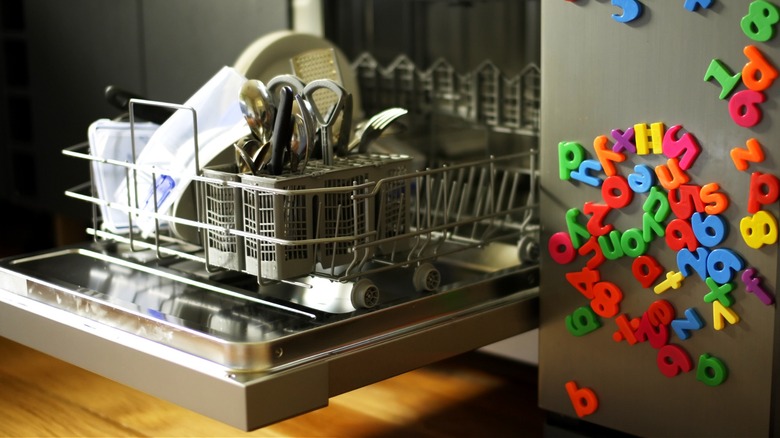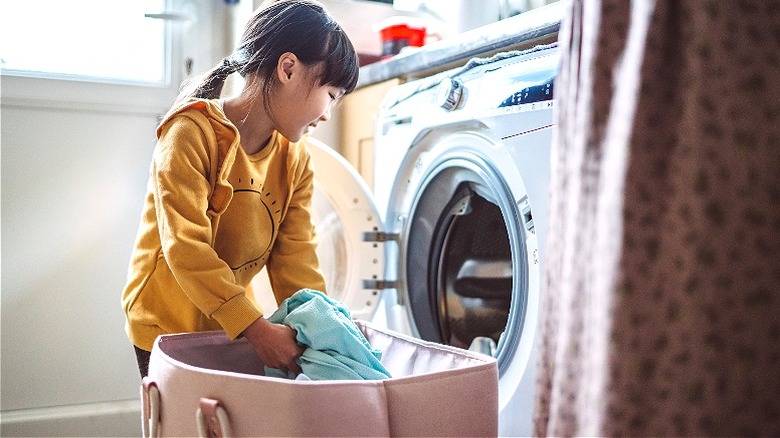Avoid Doing Chores During This Time Of Day To Save On Your Energy Bill
No one sings songs or makes films about the routine upkeep of daily life, and hardly any of us look forward to them, but unless you plan on living as an outdoors hermit, you're going to have chores to do around the house or apartment. Clothes need to be washed, sinks need to be cleaned, floors need to be swept, and carpets need to be vacuumed. They're all necessary, but they are a major time sink for your day.
While they're not likely to break the bank, household chores can also needlessly add to your monthly bills, and not because you're paying your kids too much to do them for you (by the way, how much allowance should you give your kids, anyway?). It's a matter of margins; when you use the appliances that help you with your chores and other household tasks at certain times of the day, you're paying more for electricity. But you can avoid that by using those appliances during hours when demand is lower and rates fall with it — a time known as off-peak hours.
Save by doing chores during off-peak hours
Off-peak hours are when demand for electricity is lower. Peak demand comes during the day, often in the afternoon to evening hours when businesses are operating and people at home are up and about. Electric companies will therefore charge more during these hours. As an example, PG&E uses 4 p.m. to 9 p.m. and 5 p.m. to 8 p.m. during the weekdays in various plans as time blocks to set peak rates, but peak hours will vary by the region, the season, and your electricity provider. You'll have to research your electricity provider's plans and policies to know how it handles peak hours in your area.
When shops close and people go to sleep, the demand for electricity goes down, and providers often charge less for electricity during these times. That makes the overnight hours, and those of the early morning, a good time to do any chores that need appliances. Running your dishwasher or your washing machine overnight, or even waiting to vacuum until off-peak hours arrive, can add up to significant savings in the long run. (Speaking of savings, could leaving your phone's charger plugged in be costing you via vampire energy?)
For many, off-peak-hour chores is actually preferable
By some measures, doing chores during off-peak hours suits Americans just fine. A 2021 LG Electronics/OnePoll survey of 2,000 U.S. adults (via Study Finds) found that Saturday mornings were the most popular time to get weekly chores out of the way, and depending on the time of year, mornings tend to be off-peak hours for electricity. Further, some plans will count the entire weekend as an off-peak period, making any part of it an ideal period to get your chores done.
On the other hand, some recommend the late afternoon as the best time to do work around the house. Professor Michael Smolensky, director of the Memorial-Hermann Chronobiology Center, told CNN (in 2007) that the afternoon hours are when mood and hand-eye coordination are at their highest. Unfortunately, the late afternoon is right in the middle of most estimates for peak hours (the winter may be an exception, again depending on your region). It's up to you whether shaving a little off the cost of chores, or having more energy to do them is the greater benefit. (On that note, here are a few more tips and tricks to save money on your electric bill.)


